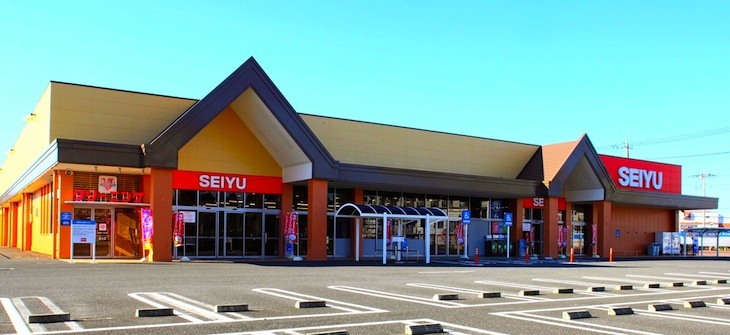Walmart reportedly looking to exit Japan (Update)
by July 12, 2018 12:03 pm 1,710 views

Japan looks to be the latest targeted divestiture of Walmart’s international portfolio, according to Nikkei business daily. The local news report cites Walmart as already having approached several major retailers and private equity funds about the sale of Seiyu, its Japanese grocery chain.
UPDATE: Walmart on Friday issued this statement: “Walmart has not made a decision to sell Seiyu, we are not in any discussions with prospective buyers, and we continue to build our Japan business towards the future to meet the changing needs of customers there.”
The business is worth between $2.7 billion and $4.5 billion, according to the Nikkei report.
The retail giant has recently downsized its positions in the United Kingdom, a mature and slow-growth market akin to Japan. This also comes after the Bentonville-based retailer sold a majority stake in its Brazilian business. Walmart has made no secret it intends to reduce its international holdings and focus on markets with highest long-term growth potential such Mexico, India and China. Insiders have also suggested a potential sale of the struggling small business in Argentina.
Last month Walmart International CEO Judith McKenna talked to the media about Walmart’s shifting portfolio. She was asked about Walmart’s intentions in Japan, and said that market was in the middle of transformation.
“We are happy with Japan’s performance. We like the stores we have in Japan which have transitioned from multi story to single story and the partnership with Rakuten for grocery delivery in Tokyo is helping to get us to an omnichannel strategy which is where we want to be all over the world,” she said.
She said Walmart continues to look at every market to evaluate the business for long-term success. In some markets that means partnerships and taking a minority stake (U.K. and Brazil) and in other markets like India it means investment and majority ownership such as FlipKart.
“We are thoughtful and deliberate about the choices we make pertaining to the portfolio. Each market has unique situations. We said in Q1 we were looking at right-sizing the international portfolio and that work continues,” McKenna said.
If Walmart does exit Japan, or take a minority share of Seiyu in would follow the exits of international competitors like Tesco who pulled stakes in Japan in 2011 and Carrefour who left in 2005. Japan’s market looks akin to the United Kingdom with many retailers struggling amid an aging population and little to no economic growth. The International Monetary Fund forecasts Japan’s economic growth will slow to 1.2% this year. The country continues to struggle with persistently low inflation and a lack of capacity for expansion. Japanese consumers are also focused more on saving.
Economists say there is recession risk for Japan as early as next year because of a sales tax hike. The last time the government raised the sale tax rate in 2014, Japan fell into recession.
Walmart operates 336 stores in Japan, the majority under the Seiyu banner. Walmart employs roughly 34,400 people in Japan since it set up shop with a minority investment in 2002. Three years later Walmart acquired a majority stake and took full ownership of Seiyu in 2008. While brick and mortar stores have struggled in Japan, Amazon has managed to grow its share with 23% of the market, racing ahead of former leader Rakuten who holds an 18.5% stake in the e-commerce market.
